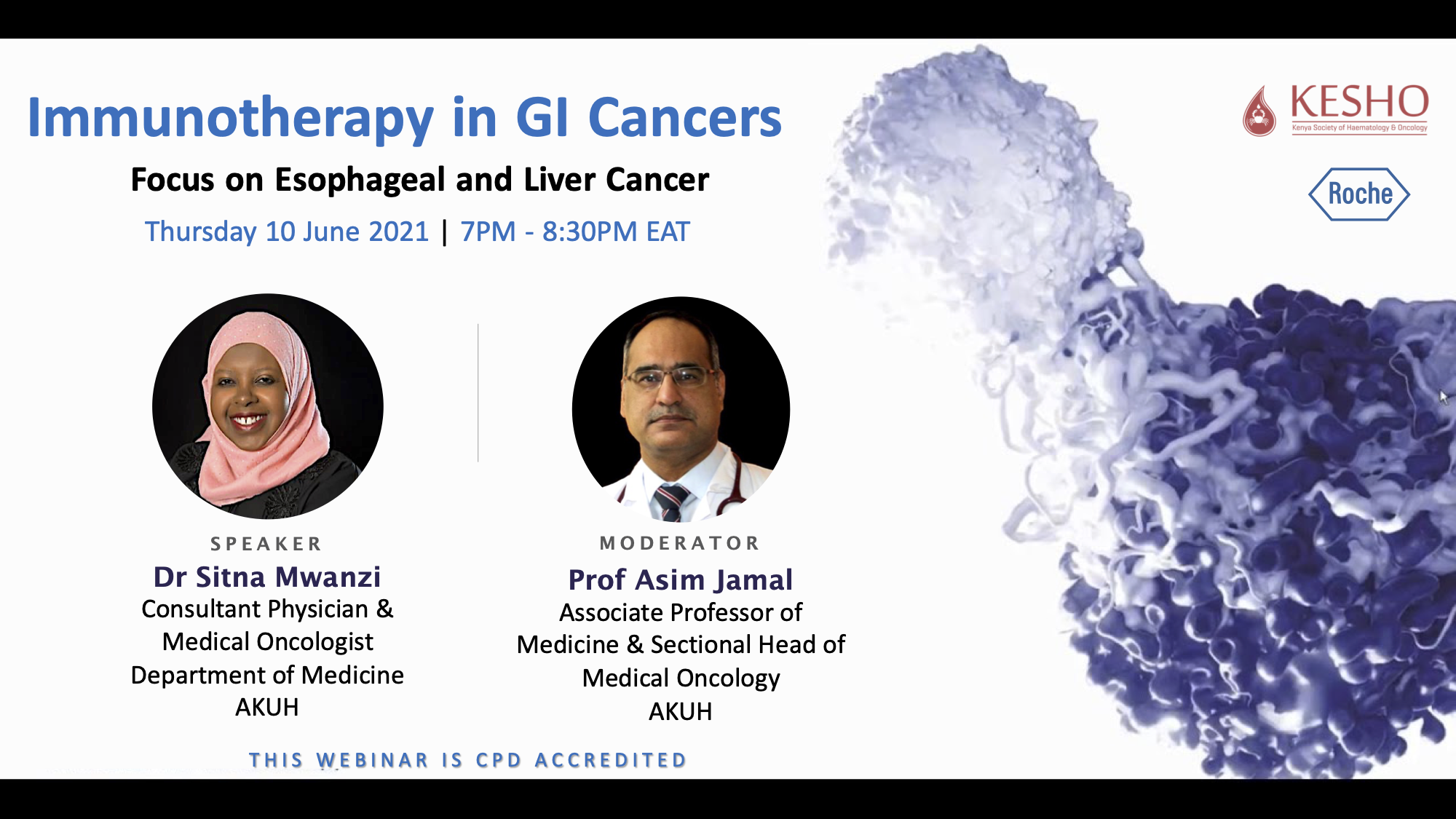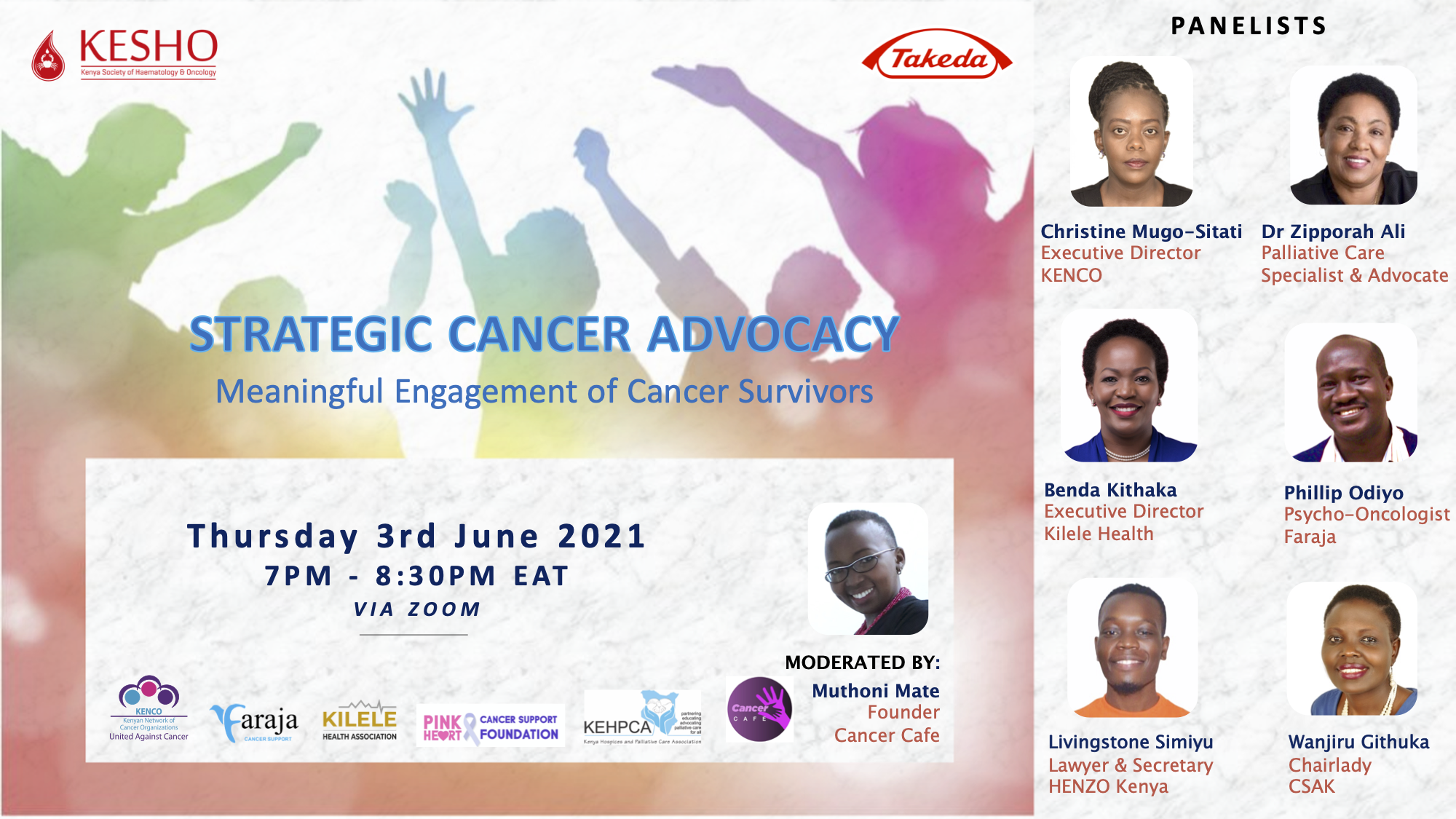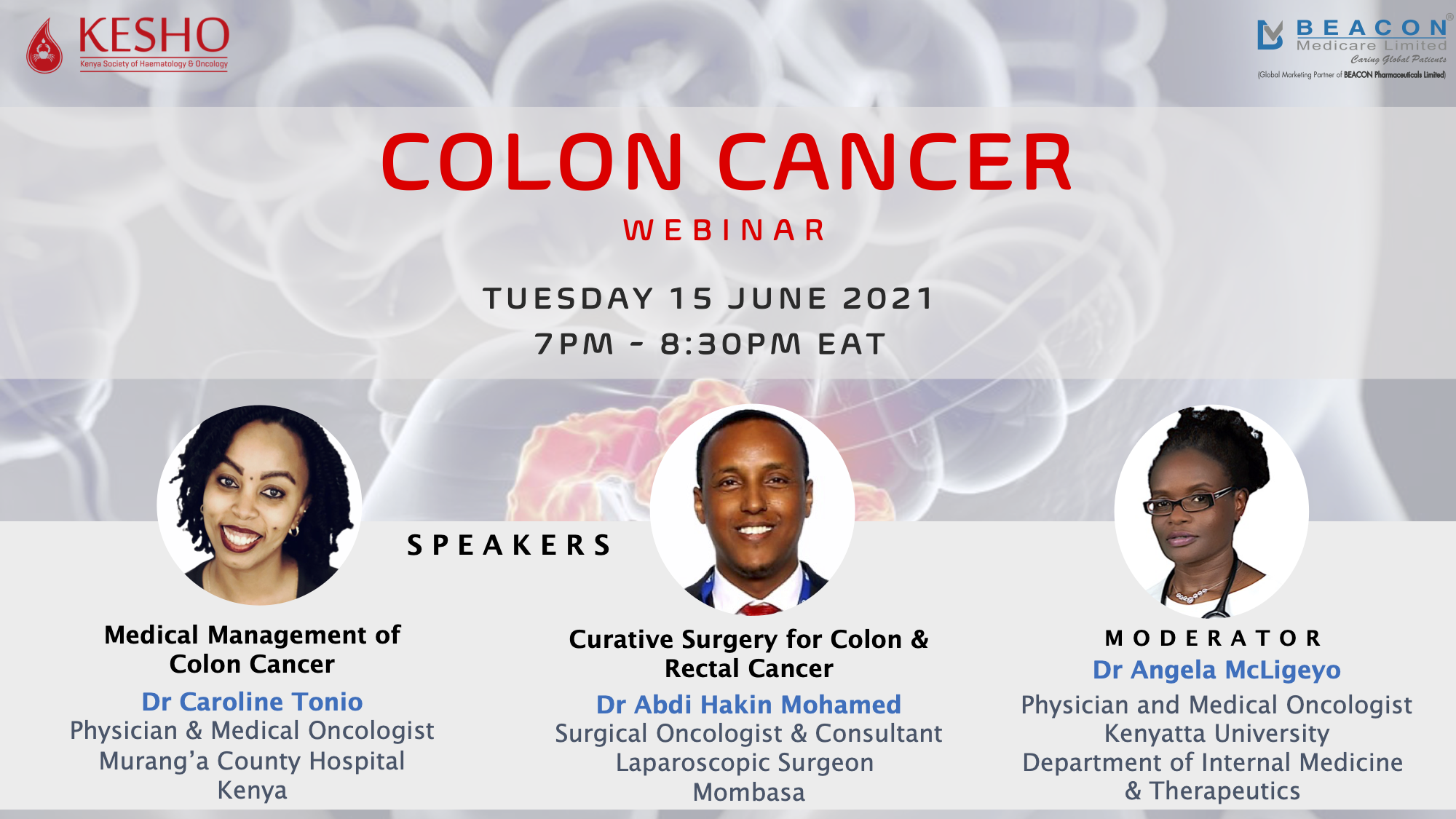
- This event has passed.
Immunotherapies In Gastrointestinal Cancers – Focus On Esophageal And Liver Cancer
Event Navigation

Moderator: Prof. Asim Jamal Shaikh, Associate professor of Medicine, Consultant Medical Oncologist, Aga Khan Hospital, Nairobi
Sponsor: Roche
Presenters: Dr. Sitna Mwanzi, Consultant Physician and Medical Oncologist, Aga Khan Hospital, Nairobi
Cancer immunotherapies involve harnessing cytokines, vaccines, cell therapy, and immune checkpoint inhibitors to fight cancer cells. The interaction of antigen processing and presenting cells (APC) with T cells requires two costimulatory signals to activate T cells. Cytotoxic T lymphocyte antigen 4 (CTLA4) competes with CD28 for B7 on dendritic cells to prevent T cell activation. Blocking CTLA4 binding to B7 removes the inhibition, resulting in T cell activation. Some immunotherapies target blocking PD1 from binding to PDL1, thus restoring T cell expansion and activation. There is a need for biomarkers study to generate more data on mechanisms of interaction of host immune and tumor cells. Gastrointestinal cancers (GI) constitute ¼ of cancers diagnosed globally with colon cancer leading among the GI cancers. There is increased incidence and mortality for GI cancers. For the management of stage II and III diseases, neoadjuvant and surgery improve survival. Additionally, adjuvant nivolumab for one year doubles disease-free survival. In metastatic disease, the addition of immunotherapy in the first and later lines of treatment to chemotherapy improves overall survival. Sequencing of treatments is highly recommended in the region. It is also important to consider the duration of the treatment and its accessibility by the patients. Additionally, it is important to consider whether we can handle the associated toxicities. Assessing patients’ response to treatment using IRECIST and biomarker testing by immunohistochemistry and next-generation sequencing is recommended. The high cost of immunotherapies prevents some patients from accessing treatment. There are challenges with timely diagnosis especially in resource-constrained countries since most health facilities in Kenya lack the necessary equipment for performing Fluorescent In situ hybridization (FISH) and have to send samples for diagnosis outside the country. This comes with additional costs that most patients cannot afford. Patient selection is very important when deciding on the correct treatment since those with advanced disease may not be initiated on treatment but will instead be referred for palliative care and support.
Webinar Recording

